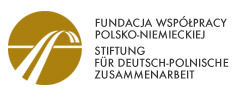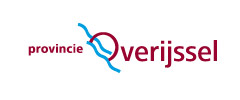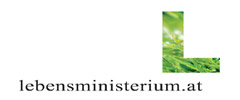Working with Women in Europe, for a Common Future
Article on Akvo Blog on its cooperation with WECF
16.09.2008 |Chantal van den Bossche
Article by Mark Chamer from Akvo on the Akvo Blog
I spoke at length with the team at Women in Europe for a Common Future this morning.
WECF is an important Akvo support partner - six of the launch day projects in Akvo belong to them, and they all still need funding - to the tune of €101,790 Euros (as of today). You can see WECF’s full profile on Akvo here. Our first projects include a safe sanitation programme for students in Uzbekistan, a sanitation programme for refugees and a water supply protection project in Georgia, and village sanitation initiatives in the Ukraine and Romania.
I wanted to understand how we can help the team bring these projects to life - what immediate actions we can take, and also what additional tools we can build that help WECF feature their Akvo projects prominently online.
I always need to stress that Akvo aims to be a project repository and engine for a partner such as WECF, but we don’t actually go out and run structured fundraising campaigns for each partner. Rather, our goal is to make the matching of projects and funds easier by creating and sharing tools that simplify the way projects are set out, made viewable and reported on. It needs to be easier and cheaper to choose a project to invest in - and it needs to be easier for people around the world to follow progress through to completion.
WECF isn’t your average NGO - a key part of its work is tackling poor access to clean drinking water and proper sanitation in Central and Eastern Europe, an area that is often overlooked by mainstream campaigners. The problems are significant and the team doesn’t pander to raising money in fashionable areas - you’ll find no cutesy imagery or populist themes here.
Take this project in Armenia. Svedlov is a village in the Lore region, and the water supply system is in urgent need of repair. Several reservoirs in the mountains should collect the water, which should then flow through a 2.3km long main pipe to the supply reservoir in the village. Yet the mountain reservoirs and main pipe are leaking, so very little water arrives in the village. Households and several key buildings - the school or townhall for example - are not provided with water. While there are nearby water sources, lack of financial resources hinder the needed repairs of the water supply system.
Fortunately, the pipe network in the village is still in a good state, and after the 200 cubic metre supply reservoir in the village is cleaned and filled, the villagers, the school, hospital and shops can receive sufficient safe water.
So the €12,800 project will focus on repairing the pipeline and six water catchments reservoirs. Labour and expertise will be delivered by local people and authorities. Lore Eco Club, a local NGO, will implement the project and conduct training, also initiating a water committee along the way. The whole project has long-term sustainability built-in - to manage the water system in future, a cost-covering fee will be requested from the users, which will be calculated and fixed by the water committee.
Akvo Flies - bringing projects to life on partner websites
Gino Lee, Malte and I have been exploring the potential for new ‘promo’ tools that feed out of the Akvo RSR system to create banner-ad or widget-style content that our project partners can feature on their own websites. The aims are threefold - help NGOs keep their website content fresh and current at low cost, focus attention on projects that need funding or are underway, and encourage better quality field partner updates in the Akvo system. Everyone I spoke with at WECF was agreed that such a tool could be useful in bringing more work to life, and for attracting direct funds, especially from individuals or smaller groups. It was good to hear - we’re looking into it.
This got us talking about the long-term potential opportunity for WECF to secure more funds drawing on the popularity of a more direct kiva.org style direct donor to recipient funding model. WECF still raises the majority of its project funds from institutions and government - but it’s keen to seek new sources of funds beyond this base.
Akvo projects are designed to be easy to select and then follow, which has already made them especially suited to single corporate funders - our success with the TAPPS beach volleyball tournament and EartWater’s De Parade festival toilet projects comes to mind. But it could also open the opportunity to engage groups of people, probably led by one or two passionate individuals that want to make a difference in a tangible, focused way. In the extreme, this is the kind of thing charity:water is doing so well right now in the USA.
But I think that’s just the start - many, many individuals could soon start to champion campaigns, using their talents to bring an idea, an issue and a particular project to life.
You know who you are. We’re here to help.
More to come
Over the next month or so, we’re going to explore how WECF’s field partners can be encouraged to feed project updates, including photography, into Akvo directly. We have five initial field organisations to service - FVC, Lore Eco Club, RCDA, UrSU and Vozrojdeny. We haven’t begun the process of expanding how they use SMS reporting, for reporting, to bring projects to life as they get underway. In a year’s time all of the links above should take you to rich content, that helps you understand who these organisations are and what they do day by day - right now it’s just the basics. This is important to address, but we need another partner that wants to fund training work in this area. Maybe I should set it up as a standalone Akvo project?
We’re also going to introduce their field engineers to the network of people now contributing to the Akvopedia. I’m hoping this will benefit everyone involved, because all are passionate about using the right technologies to suit the situation - and the Akvopedia is where we bring this knowledge together in an open wikipedia-style format.
In the meantime, I’d love to know who else out there wants to help us steer funds to these six projects. Let’s see what we can do together.


































